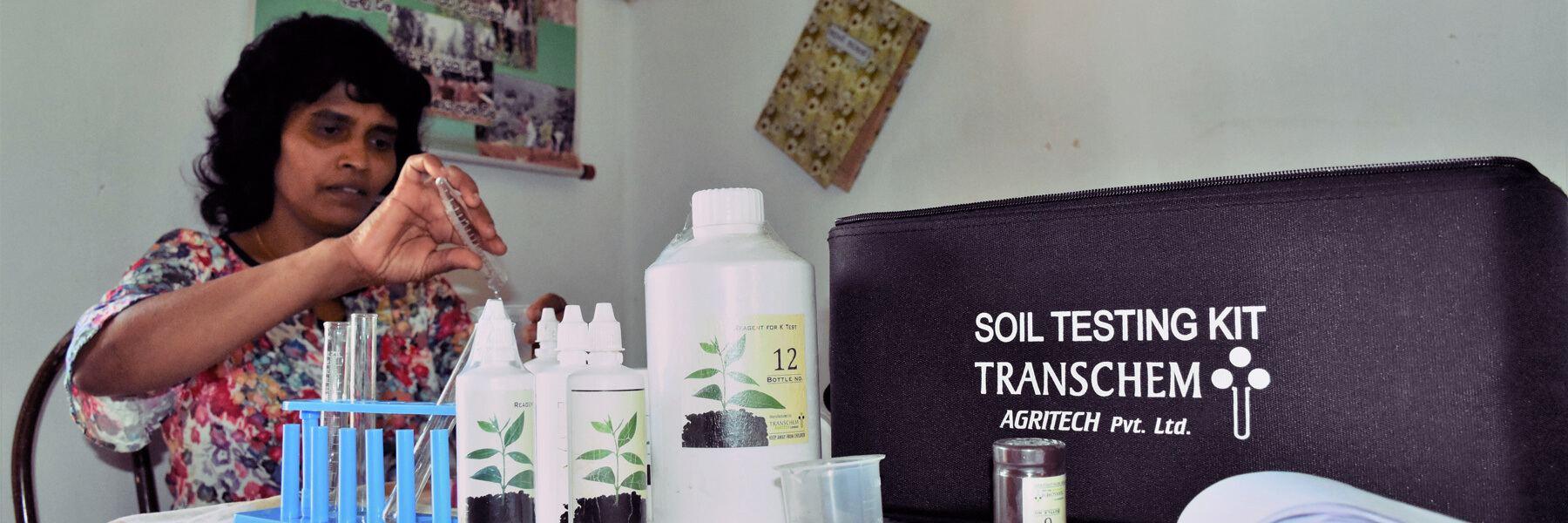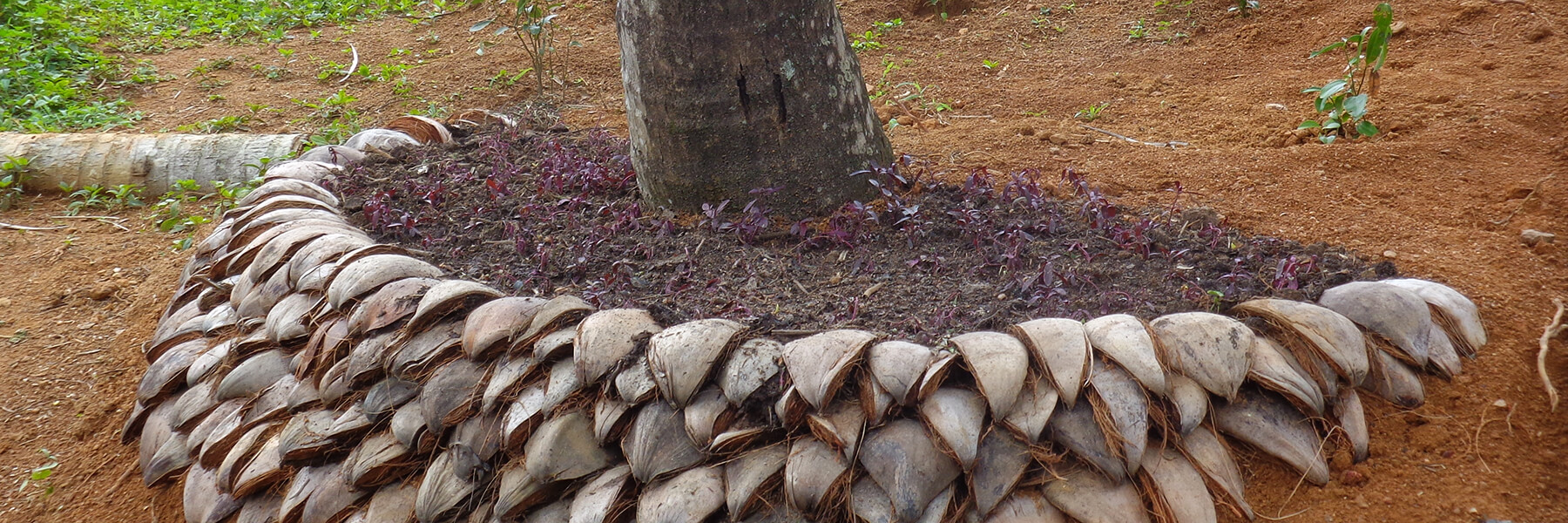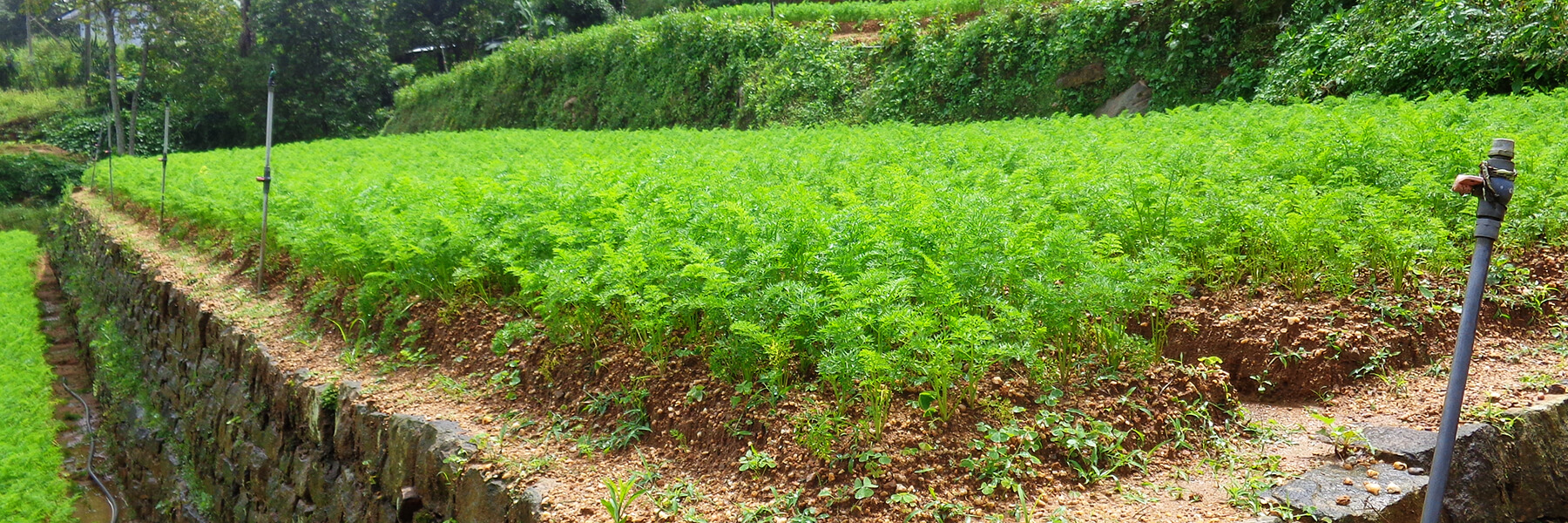Site specific fertilizer recommendations for farmlands after soil testing is now being implemented in Welimada area by the Degraded Agricultural Land Rehabilitation Project (RDALP) of the Food and Agriculture Organisation of the United Nations. The Badulla district field coordinator of the RDALP Upul Jayaweera said that soil testing has already been completed around 90% of the farmlands in the selected project implementing micro watershed areas of the district.
Jayaweera said that this is an important initiative in introducing scientific agriculture for traditional farmers. The Site Specific Fertilizer Recommendation ProjectSSERP) jointly implemented by the FAO and the Department of Agriculture (DOA) ended successfully in 2018. That project introduced portable soil test kits that can be easily carried used at farm lands and analyze soil nutrient content and recommend appropriate quantity of fertilizer. The objective is used that knowledge and experience and find solutions to stop soil pollution in Welamida area, he said.
The project is implemented in four micro watersheds in the Badulla district and they are; Sapugasulpotha in Bandarawella DS division, Dambugasagala in Welimada DS division, Sapugolla in Haliela DS division, GalenbindichchaDova in Uwaparanagama DS division. Soil in all lands in these micro watersheds are tested and beneficiary farmers get soil recommendations or instructions to improve soil quality in their lands by the field officers. Ph value of the soil, phosphorous and potassium concentration are tested and all the farmlands, home gardens, paddy fields, vegetable cultivation lands and tea lands are covered.
Soil test kits have been provided by the RDALP for the Agriculture Inspectors of the micro watershed areas. The responsibility of soil testing has been given to the AI through the Provincial Director of Agriculture. RDALP also support the farmers to rehabilitate their polluted farm lands by changing chemical composition of soil. The Provincial Director of Agriculture issue a report to each farmer on soil composition of their land, recommended fertilizer and other instructions to upgrade soil.
Agriculture Inspector of Bogahakumbura division Anusha Priyangani said that vegetable cultivating paddy lands are the most polluted lands in the area. These lands are used for vegetable cultivation in three seasons a year and excess use of inorganic fertilizer leads to soil pollution. The highlands that are used for vegetable cultivation have faced sever soil erosion and as a result of low fertility,inorganic fertilizer are used excessively. Phosphorous and potassium concentration is higher in these lands, she said.
Welimada is one of the main vegetable cultivation area of the country and the lands here are subjected to severe soil erosion. As the soil fertility is low the farmers use inorganic fertilizer excessively. According to the Department of Agriculture use of inorganic fertilizer in Welimada area is two times higher than the recommended amount. Incentives such as fertilizer subsidy has been giving by the government to increase food security have encouraged farmers to use more inorganic fertilizer. Now the government is introducing various programs to reduce inorganic fertilizer usage. RDALP encourage farmers to adopt SLM and Good Agricultural Practices (GAP) to prevent soil erosion, improve the quality of the soil and reduce chemical fertilizer use and reduce soil pollution.




